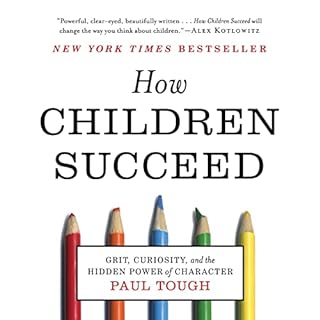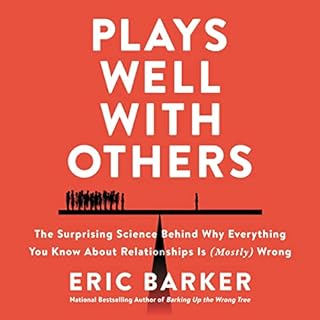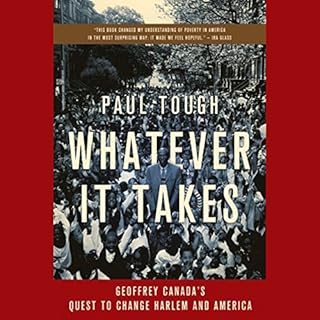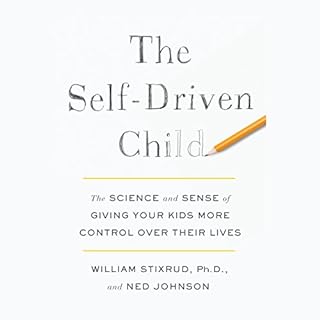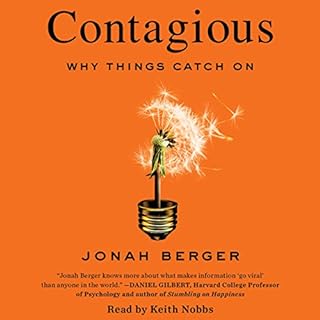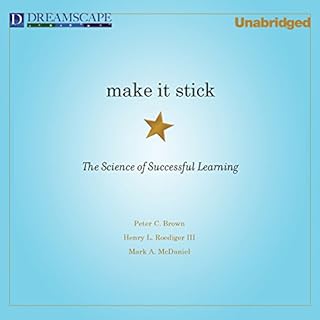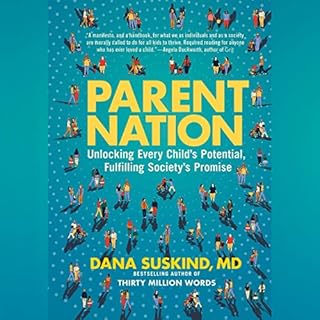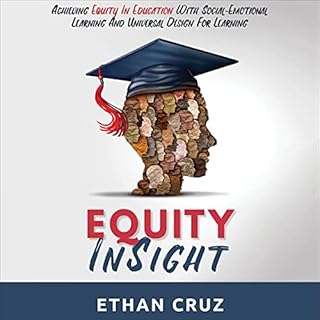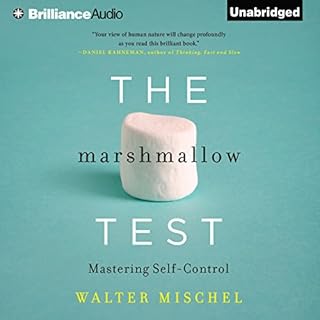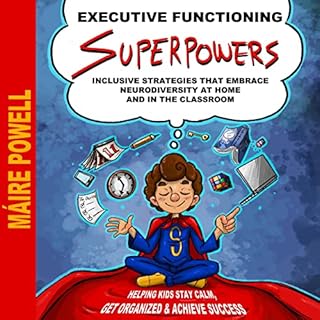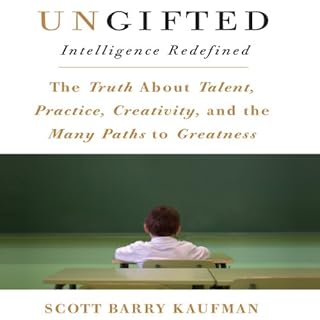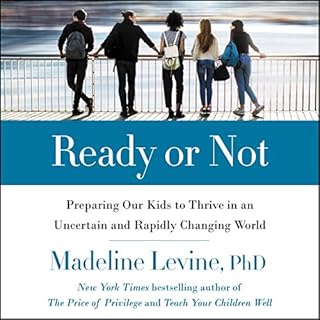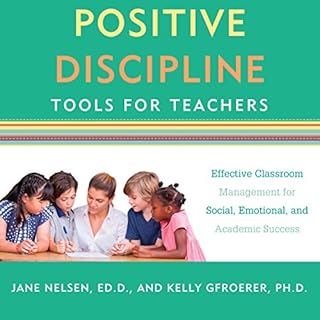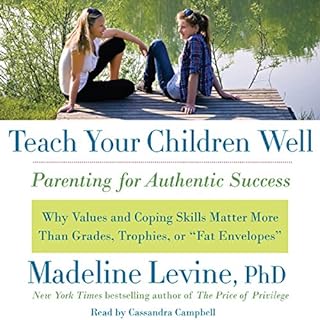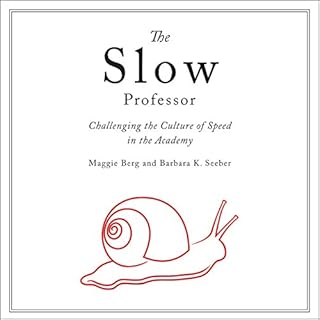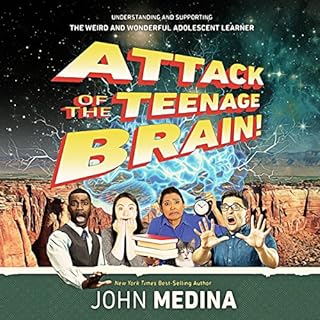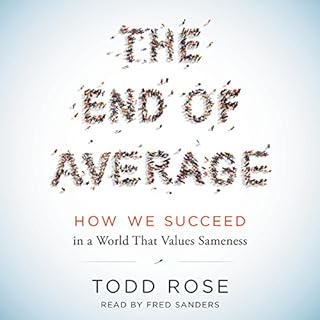
Helping Children Succeed
What Works and Why
Failed to add items
Add to Cart failed.
Add to Wish List failed.
Remove from wishlist failed.
Adding to library failed
Follow podcast failed
Unfollow podcast failed
 Prime members: New to Audible?
Prime members: New to Audible?Get 2 free audiobooks during trial.
Buy for $10.32
No default payment method selected.
We are sorry. We are not allowed to sell this product with the selected payment method
-
Narrated by:
-
Paul Tough
-
By:
-
Paul Tough
About this listen
In How Children Succeed, Paul Tough introduced us to research showing that personal qualities like perseverance, self-control, and conscientiousness play a critical role in children's success.
Now, in Helping Children Succeed, Tough takes on a new set of pressing questions: What does growing up in poverty do to children's mental and physical development? How does adversity at home affect their success in the classroom, from preschool to high school? And what practical steps can the adults who are responsible for them - from parents and teachers to policy makers and philanthropists - take to improve their chances for a positive future?
Tough once again encourages us to think in a brand new way about the challenges of childhood. Rather than trying to "teach" skills like grit and self-control, he argues, we should focus instead on creating the kinds of environments, both at home and at school, in which those qualities are most likely to flourish.
Mining the latest research in psychology and neuroscience, Tough provides us with insights and strategies for a new approach to childhood adversity - one designed to help many more children succeed.
©2016 Paul Tough (P)2016 TantorListeners also enjoyed...
-
How Children Succeed
- Grit, Curiosity, and the Hidden Power of Character
- By: Paul Tough
- Narrated by: Robert Petkoff
- Length: 8 hrs and 36 mins
- Unabridged
-
Overall4.5 out of 5 stars 75
-
Performance4.5 out of 5 stars 64
-
Story4.5 out of 5 stars 65
The story we usually tell about childhood and success is the one about intelligence: success comes to those who score highest on tests, from preschool admissions to SATs. But in How Children Succeed, Paul Tough argues that the qualities that matter most have more to do with character: skills like perseverance, curiosity, conscientiousness, optimism, and self-control. How Children Succeed introduces us to a new generation of researchers and educators who, for the first time, are using the tools of science to peel back the mysteries of character.
-
5 out of 5 stars
-
Detailed deep dive into the developmental challenges of all youth
- By Andrew little on 01-01-25
By: Paul Tough
-
The Inequality Machine
- How College Divides Us
- By: Paul Tough
- Narrated by: Paul Tough
- Length: 12 hrs and 29 mins
- Unabridged
-
Overall5 out of 5 stars 40
-
Performance5 out of 5 stars 33
-
Story5 out of 5 stars 33
From best-selling author Paul Tough, an indelible and explosive book on the glaring injustices of higher education, including unfair admissions tests, entrenched racial barriers, and crushing student debt. Now updated and expanded for the pandemic era. Combining vivid and powerful personal stories with deep, authoritative reporting, Paul Tough explains how we got into this mess and explores the innovative reforms that might get us out.
-
5 out of 5 stars
-
A must-read/listen!
- By Jetaun Davis on 05-20-21
By: Paul Tough
-
Plays Well with Others
- The Surprising Science Behind Why Everything You Know About Relationships Is (Mostly) Wrong
- By: Eric Barker
- Narrated by: Roger Wayne
- Length: 6 hrs and 55 mins
- Unabridged
-
Overall4.5 out of 5 stars 529
-
Performance5 out of 5 stars 441
-
Story4.5 out of 5 stars 438
In Plays Well With Others, Eric Barker dives into these questions, drawing on science to reveal the truth beyond the conventional wisdom about human relationships. Combining his compelling storytelling and humor, Barker explains what hostage negotiation techniques and marital arguments have in common, how an expert con-man lied his way into a twenty-year professional soccer career, and why those holding views diametrically opposed to our own actually have the potential to become our closest, most trusted friends.
-
5 out of 5 stars
-
Truly a phenomenal Book! Listen again!
- By Edmund W. Cheung on 07-05-22
By: Eric Barker
-
The Knowledge Gap
- The Hidden Cause of America's Broken Education System--and How to Fix it
- By: Natalie Wexler
- Narrated by: Natalie Wexler
- Length: 9 hrs and 15 mins
- Unabridged
-
Overall4.5 out of 5 stars 684
-
Performance5 out of 5 stars 574
-
Story4.5 out of 5 stars 561
In the tradition of Dale Russakoff's The Prize and Dana Goldstein's The Teacher Wars, Wexler brings together history, research, and compelling characters to pull back the curtain on this fundamental flaw in our education system - one that fellow reformers, journalists, and policymakers have long overlooked, and of which the general public, including many parents, remains unaware.
-
5 out of 5 stars
-
Thoughts on The Knowledge Gap
- By cchamberalain on 02-28-20
By: Natalie Wexler
-
Whatever It Takes
- Geoffrey Canada's Quest to Change Harlem and America
- By: Paul Tough
- Narrated by: Ax Norman
- Length: 10 hrs and 19 mins
- Unabridged
-
Overall4.5 out of 5 stars 159
-
Performance4.5 out of 5 stars 119
-
Story4.5 out of 5 stars 116
What would it take?That was the question that Geoffrey Canada found himself asking. What would it take to change the lives of poor children, not one by one, through heroic interventions and occasional miracles, but in big numbers, and in a way that could be replicated nationwide? The question led him to create the Harlem Children's Zone, a 97-block laboratory in central Harlem where he is testing new and sometimes controversial ideas about poverty in America.
-
5 out of 5 stars
-
Aboslutely terrific!
- By Anthony on 09-21-10
By: Paul Tough
-
The Self-Driven Child
- The Science and Sense of Giving Your Kids More Control over Their Lives
- By: William Stixrud PhD, Ned Johnson
- Narrated by: Kaleo Griffith
- Length: 11 hrs and 35 mins
- Unabridged
-
Overall4.5 out of 5 stars 1,607
-
Performance4.5 out of 5 stars 1,331
-
Story4.5 out of 5 stars 1,317
Many of us know we're putting too much pressure on our kids - and on ourselves - but how do we get off this crazy train? We want our children to succeed, to be their best, and to do their best, but what if they are not on board? A few years ago, Ned Johnson and Bill Stixrud started noticing the same problem from different angles: even high-performing kids were coming to them acutely stressed and lacking any real motivation. Many complained that they had no real control over their lives.
-
5 out of 5 stars
-
Practical, wise, and well researched
- By Andrew on 07-12-18
By: William Stixrud PhD, and others
-
How Children Succeed
- Grit, Curiosity, and the Hidden Power of Character
- By: Paul Tough
- Narrated by: Robert Petkoff
- Length: 8 hrs and 36 mins
- Unabridged
-
Overall4.5 out of 5 stars 75
-
Performance4.5 out of 5 stars 64
-
Story4.5 out of 5 stars 65
The story we usually tell about childhood and success is the one about intelligence: success comes to those who score highest on tests, from preschool admissions to SATs. But in How Children Succeed, Paul Tough argues that the qualities that matter most have more to do with character: skills like perseverance, curiosity, conscientiousness, optimism, and self-control. How Children Succeed introduces us to a new generation of researchers and educators who, for the first time, are using the tools of science to peel back the mysteries of character.
-
5 out of 5 stars
-
Detailed deep dive into the developmental challenges of all youth
- By Andrew little on 01-01-25
By: Paul Tough
-
The Inequality Machine
- How College Divides Us
- By: Paul Tough
- Narrated by: Paul Tough
- Length: 12 hrs and 29 mins
- Unabridged
-
Overall5 out of 5 stars 40
-
Performance5 out of 5 stars 33
-
Story5 out of 5 stars 33
From best-selling author Paul Tough, an indelible and explosive book on the glaring injustices of higher education, including unfair admissions tests, entrenched racial barriers, and crushing student debt. Now updated and expanded for the pandemic era. Combining vivid and powerful personal stories with deep, authoritative reporting, Paul Tough explains how we got into this mess and explores the innovative reforms that might get us out.
-
5 out of 5 stars
-
A must-read/listen!
- By Jetaun Davis on 05-20-21
By: Paul Tough
-
Plays Well with Others
- The Surprising Science Behind Why Everything You Know About Relationships Is (Mostly) Wrong
- By: Eric Barker
- Narrated by: Roger Wayne
- Length: 6 hrs and 55 mins
- Unabridged
-
Overall4.5 out of 5 stars 529
-
Performance5 out of 5 stars 441
-
Story4.5 out of 5 stars 438
In Plays Well With Others, Eric Barker dives into these questions, drawing on science to reveal the truth beyond the conventional wisdom about human relationships. Combining his compelling storytelling and humor, Barker explains what hostage negotiation techniques and marital arguments have in common, how an expert con-man lied his way into a twenty-year professional soccer career, and why those holding views diametrically opposed to our own actually have the potential to become our closest, most trusted friends.
-
5 out of 5 stars
-
Truly a phenomenal Book! Listen again!
- By Edmund W. Cheung on 07-05-22
By: Eric Barker
-
The Knowledge Gap
- The Hidden Cause of America's Broken Education System--and How to Fix it
- By: Natalie Wexler
- Narrated by: Natalie Wexler
- Length: 9 hrs and 15 mins
- Unabridged
-
Overall4.5 out of 5 stars 684
-
Performance5 out of 5 stars 574
-
Story4.5 out of 5 stars 561
In the tradition of Dale Russakoff's The Prize and Dana Goldstein's The Teacher Wars, Wexler brings together history, research, and compelling characters to pull back the curtain on this fundamental flaw in our education system - one that fellow reformers, journalists, and policymakers have long overlooked, and of which the general public, including many parents, remains unaware.
-
5 out of 5 stars
-
Thoughts on The Knowledge Gap
- By cchamberalain on 02-28-20
By: Natalie Wexler
-
Whatever It Takes
- Geoffrey Canada's Quest to Change Harlem and America
- By: Paul Tough
- Narrated by: Ax Norman
- Length: 10 hrs and 19 mins
- Unabridged
-
Overall4.5 out of 5 stars 159
-
Performance4.5 out of 5 stars 119
-
Story4.5 out of 5 stars 116
What would it take?That was the question that Geoffrey Canada found himself asking. What would it take to change the lives of poor children, not one by one, through heroic interventions and occasional miracles, but in big numbers, and in a way that could be replicated nationwide? The question led him to create the Harlem Children's Zone, a 97-block laboratory in central Harlem where he is testing new and sometimes controversial ideas about poverty in America.
-
5 out of 5 stars
-
Aboslutely terrific!
- By Anthony on 09-21-10
By: Paul Tough
-
The Self-Driven Child
- The Science and Sense of Giving Your Kids More Control over Their Lives
- By: William Stixrud PhD, Ned Johnson
- Narrated by: Kaleo Griffith
- Length: 11 hrs and 35 mins
- Unabridged
-
Overall4.5 out of 5 stars 1,607
-
Performance4.5 out of 5 stars 1,331
-
Story4.5 out of 5 stars 1,317
Many of us know we're putting too much pressure on our kids - and on ourselves - but how do we get off this crazy train? We want our children to succeed, to be their best, and to do their best, but what if they are not on board? A few years ago, Ned Johnson and Bill Stixrud started noticing the same problem from different angles: even high-performing kids were coming to them acutely stressed and lacking any real motivation. Many complained that they had no real control over their lives.
-
5 out of 5 stars
-
Practical, wise, and well researched
- By Andrew on 07-12-18
By: William Stixrud PhD, and others
-
Contagious
- Why Things Catch On
- By: Jonah Berger
- Narrated by: Keith Nobbs
- Length: 6 hrs and 50 mins
- Unabridged
-
Overall4.5 out of 5 stars 6,909
-
Performance4.5 out of 5 stars 5,831
-
Story4.5 out of 5 stars 5,794
Why do some products get more word of mouth than others? Why does some online content go viral? Word of mouth makes products, ideas, and behaviors catch on. It's more influential than advertising and far more effective. Can you create word of mouth for your product or idea? According to Berger, you can. Whether you operate a neighborhood restaurant, a corporation with hundreds of employees, or are running for a local office for the first time, the steps that can help your product or idea become viral are the same.
-
4 out of 5 stars
-
A Primer on Viral & Memorable Marketing
- By Douglas C. Bates on 04-01-13
By: Jonah Berger
-
Make It Stick
- The Science of Successful Learning
- By: Peter C. Brown, Henry L. Roediger III, Mark A. McDaniel
- Narrated by: Qarie Marshall
- Length: 8 hrs and 34 mins
- Unabridged
-
Overall4.5 out of 5 stars 5,988
-
Performance4.5 out of 5 stars 5,058
-
Story4.5 out of 5 stars 4,991
To most of us, learning something 'the hard way' implies wasted time and effort. Good teaching, we believe, should be creatively tailored to the different learning styles of students and should use strategies that make learning easier. Make It Stick turns fashionable ideas like these on their head and will appeal to all those interested in the challenge of lifelong learning and self-improvement.
-
5 out of 5 stars
-
FOR THOSE WHO WANT TO KNOW HOW TO LEARN
- By ANDRÉ on 11-22-14
By: Peter C. Brown, and others
-
Parent Nation
- Unlocking Every Child's Potential, Fulfilling Society's Promise
- By: Dana Suskind, Lydia Denworth
- Narrated by: Caroline Hewitt
- Length: 10 hrs and 4 mins
- Unabridged
-
Overall4.5 out of 5 stars 24
-
Performance4.5 out of 5 stars 20
-
Story4.5 out of 5 stars 20
World-class pediatric surgeon, social scientist, and best-selling author of Thirty Million Words Dr. Dana Suskind returns with a revelatory new look at the neuroscience of early childhood development - and how it can guide us toward a future in which every child has the opportunity to fulfill their potential. Her prescription for this more prosperous and equitable future, as clear as it is powerful, is more robust support for parents during the most critical years of their children’s development.
-
3 out of 5 stars
-
Not sure what to think
- By Shelby on 07-05-22
By: Dana Suskind, and others
-
The Coddling of the American Mind
- How Good Intentions and Bad Ideas Are Setting Up a Generation for Failure
- By: Jonathan Haidt, Greg Lukianoff
- Narrated by: Jonathan Haidt
- Length: 10 hrs and 6 mins
- Unabridged
-
Overall5 out of 5 stars 12,730
-
Performance5 out of 5 stars 10,724
-
Story4.5 out of 5 stars 10,605
The culture of “safety” and its intolerance of opposing viewpoints has left many young people anxious and unprepared for adult life. Lukianoff and Haidt offer a comprehensive set of reforms that will strengthen young people and institutions, allowing us all to reap the benefits of diversity, including viewpoint diversity. This is a book for anyone who is confused by what’s happening on college campuses today, or has children, or is concerned about the growing inability of Americans to live and work and cooperate across party lines.
-
5 out of 5 stars
-
Only Praise
- By TJ on 12-02-18
By: Jonathan Haidt, and others
-
Lost at School
- Why Our Kids with Behavioral Challenges are Falling Through the Cracks and How We Can Help Them
- By: Ross W. Greene PhD
- Narrated by: Nick Podehl
- Length: 10 hrs and 2 mins
- Unabridged
-
Overall4.5 out of 5 stars 760
-
Performance4.5 out of 5 stars 651
-
Story5 out of 5 stars 652
School discipline is broken. Too often, the kids who need our help the most are viewed as disrespectful, out of control, and beyond help, and are often the recipients of our most ineffective, most punitive interventions. These students - and their parents, teachers, and administrators - are frustrated and desperate for answers. Dr. Ross W. Greene, author of the acclaimed book The Explosive Child, offers educators and parents a different framework for understanding challenging behavior.
-
5 out of 5 stars
-
Interesting insights
- By AGrady on 07-11-16
-
Equity InSight
- Achieving Equity in Education with Social-Emotional Learning and Universal Design for Learning
- By: Ethan Cruz
- Narrated by: Christopher Herter
- Length: 3 hrs and 18 mins
- Unabridged
-
Overall5 out of 5 stars 35
-
Performance5 out of 5 stars 34
-
Story5 out of 5 stars 33
In the past, you may have thought it was impossible to implement any new patterns in the education system. With all the rules and regulations, teachers think they can’t make any sort of lasting impact on the system…until now. Social-emotional learning is an approach to education that can increase trust and emotional safety in the classroom and help each child find fulfillment, joy, and success in education! Know exactly how to identify and tackle the problems in the education system, help struggling students, and make education student-centered again.
-
5 out of 5 stars
-
An excellent audiobook!
- By stella on 04-14-22
By: Ethan Cruz
-
The Frazzled Parent
- Learning 19 Essential Skills to Teach Yourself and Your Pre-teen ADHD Child to Successfully Navigate Today’s Short Attention Span World
- By: Elaine Hogan
- Narrated by: Robin McAlpine
- Length: 3 hrs and 26 mins
- Unabridged
-
Overall5 out of 5 stars 42
-
Performance5 out of 5 stars 42
-
Story5 out of 5 stars 42
Whether you’ve only learned about your pre-teen’s diagnosis recently or you’ve been trying to manage their condition for quite some time, you may find yourself constantly overwhelmed, stressed, and even frustrated…and there’s absolutely nothing wrong with that.
-
5 out of 5 stars
-
Highly reccomend!
- By Avadanii I. on 04-19-23
By: Elaine Hogan
-
The Marshmallow Test
- Mastering Self-Control
- By: Walter Mischel
- Narrated by: Alan Alda
- Length: 7 hrs and 54 mins
- Unabridged
-
Overall4 out of 5 stars 1,767
-
Performance4.5 out of 5 stars 1,562
-
Story4 out of 5 stars 1,547
In The Marshmallow Test, Mischel explains how self-control can be mastered and applied to challenges in everyday life - from weight control to quitting smoking, overcoming heartbreak, making major decisions, and planning for retirement. With profound implications for the choices we make in parenting, education, public policy and self-care, The Marshmallow Test will change the way you think about who we are and what we can be.
-
4 out of 5 stars
-
Great performance, but lacking in content
- By Hilary - San Francisco on 09-27-14
By: Walter Mischel
-
NurtureShock
- New Thinking About Children
- By: Po Bronson, Ashley Merryman
- Narrated by: Po Bronson
- Length: 7 hrs and 57 mins
- Unabridged
-
Overall4.5 out of 5 stars 1,623
-
Performance4.5 out of 5 stars 909
-
Story4.5 out of 5 stars 903
NurtureShock is a groundbreaking collaboration between award-winning science journalists Po Bronson and Ashley Merryman. They argue that when it comes to children, we've mistaken good intentions for good ideas. With impeccable storytelling and razor-sharp analysis, they demonstrate that many of modern society's strategies for nurturing children are in fact backfiring - because key twists in the science have been overlooked.
-
4 out of 5 stars
-
I liked it and I don't even have kids.
- By Carin on 11-17-11
By: Po Bronson, and others
-
Executive Functioning Superpowers
- Inclusive Strategies That Embrace Neurodiversity at Home and in the Classroom
- By: Máire Powell
- Narrated by: Bruce Cannon
- Length: 4 hrs and 57 mins
- Unabridged
-
Overall5 out of 5 stars 47
-
Performance5 out of 5 stars 47
-
Story5 out of 5 stars 47
Think of your child's executive functioning issues as an opportunity to demonstrate strength and resilience. It's through their struggles and their efforts in overcoming them that your child will truly come into their own.
-
5 out of 5 stars
-
Love This!!!!
- By Chika Njoku on 05-23-24
By: Máire Powell
-
Whistling Vivaldi
- How Stereotypes Affect Us and What We Can Do
- By: Claude M. Steele
- Narrated by: DeMario Clarke
- Length: 6 hrs and 52 mins
- Unabridged
-
Overall4.5 out of 5 stars 673
-
Performance4.5 out of 5 stars 578
-
Story4.5 out of 5 stars 563
Claude M. Steele, who has been called “one of the few great social psychologists,” offers a vivid first-person account of the research that supports his groundbreaking conclusions on stereotypes and identity. He sheds new light on American social phenomena from racial and gender gaps in test scores to the belief in the superior athletic prowess of black men, and lays out a plan for mitigating these “stereotype threats” and reshaping American identities.
-
5 out of 5 stars
-
Surprising, in a good way
- By Michael on 09-25-20
By: Claude M. Steele
-
Executive Functioning Skills for Teens
- Super Easy to Use Strategies, Games, Tools, and Activities That Work! Help Your Kids Get Organized, Improve Focus, Self Confidence, and Life Skills
- By: Gail A. McHugh
- Narrated by: Magan Bass
- Length: 3 hrs and 17 mins
- Unabridged
-
Overall5 out of 5 stars 30
-
Performance5 out of 5 stars 29
-
Story5 out of 5 stars 29
If you want to prepare your child for the "real world" and help them become successful adults one day, this book is your way forward. Your child is just as confused as you are about all the competing demands and expectations of being a teen in today's complex world. I understand this because I am a parent myself, a school psychologist, and a counselor. My many years of working with adolescents and their parents have shown me that growth and change are indeed possible!
-
5 out of 5 stars
-
Executive Functioning by Gail McHugh
- By Jane Westerlund on 04-06-23
By: Gail A. McHugh
Related to this topic
-
How Children Succeed
- Grit, Curiosity, and the Hidden Power of Character
- By: Paul Tough
- Narrated by: Robert Petkoff
- Length: 8 hrs and 36 mins
- Unabridged
-
Overall4.5 out of 5 stars 75
-
Performance4.5 out of 5 stars 64
-
Story4.5 out of 5 stars 65
The story we usually tell about childhood and success is the one about intelligence: success comes to those who score highest on tests, from preschool admissions to SATs. But in How Children Succeed, Paul Tough argues that the qualities that matter most have more to do with character: skills like perseverance, curiosity, conscientiousness, optimism, and self-control. How Children Succeed introduces us to a new generation of researchers and educators who, for the first time, are using the tools of science to peel back the mysteries of character.
-
5 out of 5 stars
-
Detailed deep dive into the developmental challenges of all youth
- By Andrew little on 01-01-25
By: Paul Tough
-
Ungifted
- Intelligence Redefined
- By: Scott Barry Kaufman
- Narrated by: Walter Dixon
- Length: 11 hrs and 36 mins
- Unabridged
-
Overall4.5 out of 5 stars 97
-
Performance4.5 out of 5 stars 76
-
Story4.5 out of 5 stars 77
In Ungifted, cognitive psychologist Scott Barry Kaufman - who was relegated to special education as a child - sets out to show that the way we interpret traditional metrics of intelligence is misguided. Kaufman explores the latest research in genetics and neuroscience, as well as evolutionary, developmental, social, positive, and cognitive psychology, to challenge the conventional wisdom about the childhood predictors of adult success. He reveals that there are many paths to greatness, and argues for a more holistic approach to achievement that takes into account each young person’s personal goals, individual psychology, and developmental trajectory.
-
4 out of 5 stars
-
Great content for the intellectually curious
- By ZestyFresh on 08-11-17
-
The Marshmallow Test
- Mastering Self-Control
- By: Walter Mischel
- Narrated by: Alan Alda
- Length: 7 hrs and 54 mins
- Unabridged
-
Overall4 out of 5 stars 1,767
-
Performance4.5 out of 5 stars 1,562
-
Story4 out of 5 stars 1,547
In The Marshmallow Test, Mischel explains how self-control can be mastered and applied to challenges in everyday life - from weight control to quitting smoking, overcoming heartbreak, making major decisions, and planning for retirement. With profound implications for the choices we make in parenting, education, public policy and self-care, The Marshmallow Test will change the way you think about who we are and what we can be.
-
4 out of 5 stars
-
Great performance, but lacking in content
- By Hilary - San Francisco on 09-27-14
By: Walter Mischel
-
Age of Opportunity
- Lessons from the New Science of Adolescence
- By: Laurence Steinberg Ph.D.
- Narrated by: Malcolm Hillgartner
- Length: 8 hrs and 49 mins
- Unabridged
-
Overall4.5 out of 5 stars 136
-
Performance4.5 out of 5 stars 110
-
Story4.5 out of 5 stars 108
Adolescence now lasts longer than ever before. And as world-renowned expert on adolescent psychology Dr. Laurence Steinberg argues, this makes these years the key period in determining individuals’ life outcomes, demanding that we change the way we parent, educate, and understand young people.
-
5 out of 5 stars
-
if you think you know, think again
- By Dk on 12-11-14
-
Whistling Vivaldi
- How Stereotypes Affect Us and What We Can Do
- By: Claude M. Steele
- Narrated by: DeMario Clarke
- Length: 6 hrs and 52 mins
- Unabridged
-
Overall4.5 out of 5 stars 673
-
Performance4.5 out of 5 stars 578
-
Story4.5 out of 5 stars 563
Claude M. Steele, who has been called “one of the few great social psychologists,” offers a vivid first-person account of the research that supports his groundbreaking conclusions on stereotypes and identity. He sheds new light on American social phenomena from racial and gender gaps in test scores to the belief in the superior athletic prowess of black men, and lays out a plan for mitigating these “stereotype threats” and reshaping American identities.
-
5 out of 5 stars
-
Surprising, in a good way
- By Michael on 09-25-20
By: Claude M. Steele
-
The Self-Driven Child
- The Science and Sense of Giving Your Kids More Control over Their Lives
- By: William Stixrud PhD, Ned Johnson
- Narrated by: Kaleo Griffith
- Length: 11 hrs and 35 mins
- Unabridged
-
Overall4.5 out of 5 stars 1,607
-
Performance4.5 out of 5 stars 1,331
-
Story4.5 out of 5 stars 1,317
Many of us know we're putting too much pressure on our kids - and on ourselves - but how do we get off this crazy train? We want our children to succeed, to be their best, and to do their best, but what if they are not on board? A few years ago, Ned Johnson and Bill Stixrud started noticing the same problem from different angles: even high-performing kids were coming to them acutely stressed and lacking any real motivation. Many complained that they had no real control over their lives.
-
5 out of 5 stars
-
Practical, wise, and well researched
- By Andrew on 07-12-18
By: William Stixrud PhD, and others
-
How Children Succeed
- Grit, Curiosity, and the Hidden Power of Character
- By: Paul Tough
- Narrated by: Robert Petkoff
- Length: 8 hrs and 36 mins
- Unabridged
-
Overall4.5 out of 5 stars 75
-
Performance4.5 out of 5 stars 64
-
Story4.5 out of 5 stars 65
The story we usually tell about childhood and success is the one about intelligence: success comes to those who score highest on tests, from preschool admissions to SATs. But in How Children Succeed, Paul Tough argues that the qualities that matter most have more to do with character: skills like perseverance, curiosity, conscientiousness, optimism, and self-control. How Children Succeed introduces us to a new generation of researchers and educators who, for the first time, are using the tools of science to peel back the mysteries of character.
-
5 out of 5 stars
-
Detailed deep dive into the developmental challenges of all youth
- By Andrew little on 01-01-25
By: Paul Tough
-
Ungifted
- Intelligence Redefined
- By: Scott Barry Kaufman
- Narrated by: Walter Dixon
- Length: 11 hrs and 36 mins
- Unabridged
-
Overall4.5 out of 5 stars 97
-
Performance4.5 out of 5 stars 76
-
Story4.5 out of 5 stars 77
In Ungifted, cognitive psychologist Scott Barry Kaufman - who was relegated to special education as a child - sets out to show that the way we interpret traditional metrics of intelligence is misguided. Kaufman explores the latest research in genetics and neuroscience, as well as evolutionary, developmental, social, positive, and cognitive psychology, to challenge the conventional wisdom about the childhood predictors of adult success. He reveals that there are many paths to greatness, and argues for a more holistic approach to achievement that takes into account each young person’s personal goals, individual psychology, and developmental trajectory.
-
4 out of 5 stars
-
Great content for the intellectually curious
- By ZestyFresh on 08-11-17
-
The Marshmallow Test
- Mastering Self-Control
- By: Walter Mischel
- Narrated by: Alan Alda
- Length: 7 hrs and 54 mins
- Unabridged
-
Overall4 out of 5 stars 1,767
-
Performance4.5 out of 5 stars 1,562
-
Story4 out of 5 stars 1,547
In The Marshmallow Test, Mischel explains how self-control can be mastered and applied to challenges in everyday life - from weight control to quitting smoking, overcoming heartbreak, making major decisions, and planning for retirement. With profound implications for the choices we make in parenting, education, public policy and self-care, The Marshmallow Test will change the way you think about who we are and what we can be.
-
4 out of 5 stars
-
Great performance, but lacking in content
- By Hilary - San Francisco on 09-27-14
By: Walter Mischel
-
Age of Opportunity
- Lessons from the New Science of Adolescence
- By: Laurence Steinberg Ph.D.
- Narrated by: Malcolm Hillgartner
- Length: 8 hrs and 49 mins
- Unabridged
-
Overall4.5 out of 5 stars 136
-
Performance4.5 out of 5 stars 110
-
Story4.5 out of 5 stars 108
Adolescence now lasts longer than ever before. And as world-renowned expert on adolescent psychology Dr. Laurence Steinberg argues, this makes these years the key period in determining individuals’ life outcomes, demanding that we change the way we parent, educate, and understand young people.
-
5 out of 5 stars
-
if you think you know, think again
- By Dk on 12-11-14
-
Whistling Vivaldi
- How Stereotypes Affect Us and What We Can Do
- By: Claude M. Steele
- Narrated by: DeMario Clarke
- Length: 6 hrs and 52 mins
- Unabridged
-
Overall4.5 out of 5 stars 673
-
Performance4.5 out of 5 stars 578
-
Story4.5 out of 5 stars 563
Claude M. Steele, who has been called “one of the few great social psychologists,” offers a vivid first-person account of the research that supports his groundbreaking conclusions on stereotypes and identity. He sheds new light on American social phenomena from racial and gender gaps in test scores to the belief in the superior athletic prowess of black men, and lays out a plan for mitigating these “stereotype threats” and reshaping American identities.
-
5 out of 5 stars
-
Surprising, in a good way
- By Michael on 09-25-20
By: Claude M. Steele
-
The Self-Driven Child
- The Science and Sense of Giving Your Kids More Control over Their Lives
- By: William Stixrud PhD, Ned Johnson
- Narrated by: Kaleo Griffith
- Length: 11 hrs and 35 mins
- Unabridged
-
Overall4.5 out of 5 stars 1,607
-
Performance4.5 out of 5 stars 1,331
-
Story4.5 out of 5 stars 1,317
Many of us know we're putting too much pressure on our kids - and on ourselves - but how do we get off this crazy train? We want our children to succeed, to be their best, and to do their best, but what if they are not on board? A few years ago, Ned Johnson and Bill Stixrud started noticing the same problem from different angles: even high-performing kids were coming to them acutely stressed and lacking any real motivation. Many complained that they had no real control over their lives.
-
5 out of 5 stars
-
Practical, wise, and well researched
- By Andrew on 07-12-18
By: William Stixrud PhD, and others
-
Limitless Mind
- Learn, Lead, and Live Without Barriers
- By: Jo Boaler
- Narrated by: Jo Boaler
- Length: 6 hrs and 22 mins
- Unabridged
-
Overall4.5 out of 5 stars 542
-
Performance4.5 out of 5 stars 463
-
Story4.5 out of 5 stars 457
In this revolutionary book, a professor of education at Stanford University and acclaimed math educator who has spent decades studying the impact of beliefs and bias on education, reveals the six keys to unlocking learning potential, based on the latest scientific findings.
-
3 out of 5 stars
-
Title does not reflect audience
- By Oliver Nielsen on 05-02-20
By: Jo Boaler
-
Ready or Not
- Preparing Our Kids to Thrive in an Uncertain and Rapidly Changing World
- By: Madeline Levine
- Narrated by: Abby Craden
- Length: 7 hrs and 24 mins
- Unabridged
-
Overall4.5 out of 5 stars 28
-
Performance4.5 out of 5 stars 22
-
Story5 out of 5 stars 22
Ready or Not explores how today’s parenting techniques and our myopic educational system are failing to prepare children for their certain-to-be-uncertain future - and how we can reverse course to ensure their lasting adaptability, resilience, health, and happiness.
By: Madeline Levine
-
Back to Normal
- Why Ordinary Childhood Behavior Is Mistaken for ADHD, Bipolar Disorder, and Autism Spectrum Disorder
- By: Enrico Gnaulati
- Narrated by: Matthew Kugler
- Length: 8 hrs and 31 mins
- Unabridged
-
Overall4 out of 5 stars 63
-
Performance4.5 out of 5 stars 49
-
Story4.5 out of 5 stars 49
A veteran clinical psychologist exposes why doctors, teachers, and parents incorrectly diagnose healthy American children with serious psychiatric conditions. In recent years there has been an alarming rise in the number of American children and youth assigned a mental health diagnosis. Current data from the Centers for Disease Control reveal a 41 percent increase in rates of ADHD diagnoses over the past decade and a forty-fold spike in bipolar disorder diagnoses. Similarly, diagnoses of autism spectrum disorder has increased by 78 percent since 2002.
-
4 out of 5 stars
-
surprisingly useful and specific
- By SaturdayDad on 03-07-14
By: Enrico Gnaulati
-
Positive Discipline Tools for Teachers
- Effective Classroom Management for Social, Emotional, and Academic Success
- By: Jane Nelsen, Kelly Gfroerer
- Narrated by: Virginia Wolf
- Length: 7 hrs and 33 mins
- Unabridged
-
Overall4.5 out of 5 stars 79
-
Performance4.5 out of 5 stars 71
-
Story4.5 out of 5 stars 70
The positive discipline method has proved to be an invaluable resource for teachers who want to foster creative problem-solving within their students, giving them the behavioral skills they need to understand and process what they learn. Each tool is tailored specifically for the modern teacher, with examples and solutions to each and every roadblock that stands in the way of cooperative and student-centered learning.
-
3 out of 5 stars
-
Good ideas but misleading
- By J. Frazier on 03-29-18
By: Jane Nelsen, and others
-
Teach Your Children Well
- Parenting for Authentic Success
- By: Madeline Levine PhD
- Narrated by: Cassandra Campbell
- Length: 10 hrs and 57 mins
- Unabridged
-
Overall4.5 out of 5 stars 95
-
Performance4.5 out of 5 stars 73
-
Story4.5 out of 5 stars 70
Parents, educators, and the media wring their hands about the plight of America's children and teens - soaring rates of emotional problems, limited coping skills, disengagement from learning - and yet there are ways to reverse these disheartening trends. Teach Your Children Well acknowledges that every parent wants successful children. However, until we are clearer about our core values and the parenting choices that are most likely to lead to authentic, and not superficial, success, we will continue to raise exhausted, externally driven, impaired children.
-
5 out of 5 stars
-
I wish this book had been published years ago
- By AvidReader on 09-07-12
-
The Slow Professor
- Challenging the Culture of Speed in the Academy
- By: Maggie Berg, Barbara K. Seeber
- Narrated by: Emily Sutton-Smith
- Length: 3 hrs and 43 mins
- Unabridged
-
Overall4 out of 5 stars 64
-
Performance4 out of 5 stars 57
-
Story4 out of 5 stars 55
The corporatisation of the contemporary university has sped up the clock. In The Slow Professor, Maggie Berg and Barbara K. Seeber discuss how adopting the principles of the Slow movement in academic life can counter this erosion of humanistic education. Focusing on the individual faculty member and his or her own professional practice, Berg and Seeber present both an analysis of the culture of speed in the academy and ways of alleviating stress while improving teaching, research, and collegiality.
-
5 out of 5 stars
-
I needed to listen to this, thank you!
- By Anonymous User on 09-12-24
By: Maggie Berg, and others
-
Attack of the Teenage Brain
- Understanding and Supporting the Weird and Wonderful Adolescent Learner
- By: John Medina
- Narrated by: John Medina
- Length: 6 hrs and 16 mins
- Unabridged
-
Overall5 out of 5 stars 29
-
Performance4.5 out of 5 stars 27
-
Story4.5 out of 5 stars 27
In accessible language and with periodic references to Star Trek, motorcycle daredevils, and near-classic movies of the '80s, developmental molecular biologist John Medina explores the neurological and evolutionary factors that drive teenage behavior and can affect both achievement and engagement. Then he proposes a research-supported counterattack: a bold redesign of educational practices and learning environments to deliberately develop teens' cognitive capacity to manage their emotions, plan, prioritize, and focus.
-
5 out of 5 stars
-
Wish I knew years ago
- By John Wernecke on 05-30-18
By: John Medina
-
Unschooled
- Raising Curious, Well-Educated Children Outside the Conventional Classroom
- By: Kerry Mcdonald, Peter Grey PhD
- Narrated by: Lesa Lockford
- Length: 9 hrs and 39 mins
- Unabridged
-
Overall4.5 out of 5 stars 230
-
Performance4.5 out of 5 stars 186
-
Story4.5 out of 5 stars 184
In a compelling narrative that introduces historical and contemporary research on self-directed education, Unschooled also spotlights how a diverse group of individuals and organizations are evolving an old schooling model of education. These innovators challenge the myth that children need to be taught in order to learn.
-
1 out of 5 stars
-
Not for parents
- By online shopper on 05-24-20
By: Kerry Mcdonald, and others
-
The End of Average
- How We Succeed in a World That Values Sameness
- By: Todd Rose
- Narrated by: Fred Sanders
- Length: 6 hrs and 31 mins
- Unabridged
-
Overall4.5 out of 5 stars 1,212
-
Performance4.5 out of 5 stars 1,035
-
Story4.5 out of 5 stars 1,031
Are you above average? Is your child an A student? Is your employee an introvert or an extrovert? Every day we are measured against the yardstick of averages, judged according to how close we come to it or how far we deviate from it. The assumption that metrics comparing us to an average—like GPAs, personality test results, and performance review ratings—reveal something meaningful about our potential is so ingrained in our consciousness that we don't even question it. That assumption, says Harvard's Todd Rose, is spectacularly—and scientifically—wrong.
-
1 out of 5 stars
-
Good intentions, terrible execution
- By Kristofer Jarl on 05-06-19
By: Todd Rose
-
Emotional Intelligence
- By: Daniel Goleman
- Narrated by: Barrett Whitener
- Length: 13 hrs and 32 mins
- Unabridged
-
Overall4 out of 5 stars 3,662
-
Performance4 out of 5 stars 2,639
-
Story4.5 out of 5 stars 2,595
It is the tenth anniversary since the first publication of Daniel Goleman's groundbreaking bestseller, Emotional Intelligence, which maps the territory where IQ meets EQ, where we apply what we know to how we live. Spending over a year on the New York Times bestseller list, Emotional Intelligence provided the evidence for what many successful people already knew: being smart isn't just a matter of mastering facts; it's a matter of mastering your own emotions and understanding the emotions of the people around you.
-
3 out of 5 stars
-
Good info, hard to listen sometimes
- By Stephanie on 04-16-03
By: Daniel Goleman
-
The Formula
- Unlocking the Secrets to Raising Highly Successful Children
- By: Ronald F. Ferguson, Tatsha Robertson
- Narrated by: Cynthia Farrell
- Length: 10 hrs and 4 mins
- Unabridged
-
Overall4.5 out of 5 stars 129
-
Performance4.5 out of 5 stars 110
-
Story4.5 out of 5 stars 110
In The Formula: Unlocking the Secrets to Raising Highly Successful Children, Harvard economist Ronald Ferguson, named in a New York Times profile as the foremost expert on the US educational "achievement gap," along with award-winning journalist Tatsha Robertson, reveal an intriguing blueprint for helping children from all types of backgrounds become successful adults.
-
4 out of 5 stars
-
would recommend
- By Marcia on 02-25-20
By: Ronald F. Ferguson, and others
-
Whatever It Takes
- Geoffrey Canada's Quest to Change Harlem and America
- By: Paul Tough
- Narrated by: Ax Norman
- Length: 10 hrs and 19 mins
- Unabridged
-
Overall4.5 out of 5 stars 159
-
Performance4.5 out of 5 stars 119
-
Story4.5 out of 5 stars 116
What would it take?That was the question that Geoffrey Canada found himself asking. What would it take to change the lives of poor children, not one by one, through heroic interventions and occasional miracles, but in big numbers, and in a way that could be replicated nationwide? The question led him to create the Harlem Children's Zone, a 97-block laboratory in central Harlem where he is testing new and sometimes controversial ideas about poverty in America.
-
5 out of 5 stars
-
Aboslutely terrific!
- By Anthony on 09-21-10
By: Paul Tough
What listeners say about Helping Children Succeed
Highly rated for:
Reviews - Please select the tabs below to change the source of reviews.
-
Overall4 out of 5 stars
-
Performance3 out of 5 stars
-
Story5 out of 5 stars
- Cowann Owens
- 01-15-17
Very Helpful read for school counslors
As a Social Worker and School Counselor this was a greatly beneficial read on grit
Something went wrong. Please try again in a few minutes.
You voted on this review!
You reported this review!
-
Overall4 out of 5 stars
-
Performance4 out of 5 stars
-
Story4 out of 5 stars
- Adam Shields
- 09-14-16
The environment matters
My paying job is to manage data for an after school program that works in low income areas and targets low performing students at low performing school. I am always interested in the latest theories and practices that seem to be successful. But I have been working at this job for nearly 15 years. And my wife has been a teacher for even longer. I have seen trends come and go. Solutions are never fast or simple because the problems have been long in coming and are infinitely complex.
Paul Tough is a journalist, a writer for the New York Times and a contributor to This American Life. This is his second book on this theme (the first was How Children Succeed: Grit, Curiosity, and the Hidden Power of Character). This is a very short book, 145 pages, less than 4 hours of audio. And in that short number of pages there are still 23 chapters. Tough opens by charting out why children from difficult backgrounds have difficulty in school and life. Adversity, stress, trauma, neglect, low attachment and other adversities all impact development. Some of these can literally change DNA, but all impact development of young children, which has a very long term impact on future development.
Helping Children Succeed is more than diagnosing the problem, Tough also attempts to chart out some of the failed solutions and some of the potential viable solutions. There is no pretense that solving problems of education is easy. But because of differences of demographics, population trends and birth rates, the majority of children in schools are now poor, minority or from other difficult to educate subgroups.
Where I think Tough is right is that character issues, internal motivation and 'grit' is more important in the long term than base intelligence. The question is how to develop the internal, and often precognitive, skills that allow kids to do the hard work that is necessary to overcome their educational difficulties.
Tough is not particularly easy on the education system. The culture of control and zero tolerance of students, especially of minority students does not help students develop internal motivation. Traditional behaviorist motivations (rewards for good behavior) often undercut internal motivation. Assessment, which Tough agrees is important, is difficult. So we often measure what is easy to count, not what is important.
There are a variety of examples, but one study that Tough cites took a very large dataset of students and teachers. Traditionally teachers are rewarded for improving test scores. Those teachers are fairly easy to identify. But one study was able to track students that seemed to have changes in motivation and then correlated them to teachers. Teachers that were able to help students learn internal motivation were almost never the same teachers that showed significant improvements in test scores. But students that had teachers that helped them improve in their motivation improved over the long term, not just in that one class.
The larger message of the book is that we can help student succeed. But what is most effective isn't the particular method of teaching grit to the one student. But creating institutions and systems where success is more likely to occur. Early intervention (and he details a number of early intervention programs that do not help), school environments (especially relationships with teachers and other students) and pedagogical systems that are focused deep learning, student focused problems solving and challenge seem to be effective. But changing systems and institutions is long term and difficult compared to rolling out another short term program.
This was a broadly helpful book. It has real research and science behind it. Because I am fairly widely read in the area, there was not a lot that was completely new. But as a short introductory primer, this is a very good place to start a discussion. I can see this being a great book for small group discussions among educators or parent groups. In many ways though, this is also a discouraging book because the problems of scale, time and culture are all working against long term change.
Something went wrong. Please try again in a few minutes.
You voted on this review!
You reported this review!
10 people found this helpful
-
Overall5 out of 5 stars
-
Performance5 out of 5 stars
-
Story5 out of 5 stars
- Eve
- 07-03-16
Succinct, Timely, and Inspiring
Paul Tough has written another insightful book that highlights the education crisis in the US. This time he expands in the ideas of his last book, to offer proven strategies from educational, cognitive and developmental research. He has a great way of making the research digestible and succinct--allowing it t guide best practices, not his own personal narrative. A great read/listen for people of all backgrounds.
Something went wrong. Please try again in a few minutes.
You voted on this review!
You reported this review!
1 person found this helpful
-
Overall5 out of 5 stars
-
Performance5 out of 5 stars
-
Story5 out of 5 stars
- William P
- 06-17-18
Remind yourself why you wanted to be a teacher
This book was truly a gift to read. It gives lots of profound insight into the details of how to fix our messed up educational system. And the best part, it never leaves you wondering, "Well that's great and all Paul, but how the hell do I implement this in my classroom?". The author/reader is above all else: passionate. And it comes across in both the written words and their reading. A great text to read over summer vacation to empower you to plan for next year with a few new ideas in your bag.
Something went wrong. Please try again in a few minutes.
You voted on this review!
You reported this review!
-
Overall4 out of 5 stars
-
Performance4 out of 5 stars
-
Story3 out of 5 stars
- J. Hannah
- 09-18-17
Great book for advocates of education reform and parents
Great book for review of current literature in education and application of experiential learning programs.
With our current situation in American education, Paul Tough does a very nice job of outlining a few alternative educational methods. H
Something went wrong. Please try again in a few minutes.
You voted on this review!
You reported this review!
-
Overall5 out of 5 stars
-
Performance4 out of 5 stars
-
Story5 out of 5 stars
- TaCara
- 08-29-16
America needs to put this research into action.
A great portion of our society is inheriting limitations and struggle. We must help change.
Something went wrong. Please try again in a few minutes.
You voted on this review!
You reported this review!
-
Overall5 out of 5 stars
- maria requena
- 03-19-20
Very easy listen and reflective food for thought
Great food for thought on educational systems and understanding what students in low income house holds go through
Something went wrong. Please try again in a few minutes.
You voted on this review!
You reported this review!
-
Overall5 out of 5 stars
-
Performance5 out of 5 stars
-
Story5 out of 5 stars
- Mae Amaru
- 01-09-18
Insightful
As a parent who grew up in a less than stellar environment I find myself; as most of us do, trying to figure out how to provide a better environment for my children.
This book doesn't only give a clear insight into how to best raise children, but also gave me a great understanding about myself and the effects my upbringing has had on me. I highly recommend this book!
Something went wrong. Please try again in a few minutes.
You voted on this review!
You reported this review!
-
Overall5 out of 5 stars
-
Performance5 out of 5 stars
-
Story5 out of 5 stars
- Charley
- 02-02-23
Concise and Informative
This concise and informative overview about the kinds of schools that help all children thrive is essential reading for educators looking for answers and a straight forward recipe for change.
Something went wrong. Please try again in a few minutes.
You voted on this review!
You reported this review!
-
Overall3 out of 5 stars
-
Performance3 out of 5 stars
-
Story3 out of 5 stars
- Wayne
- 08-03-16
I've seldom been more disappointed in a book
Helping Children Succeed is not really a book; it should have been published as an educational journal paper. The text of this book can be easily read in less than two hours. The basic premise is that US public school systems fail to recognize and understand the importance of non-cognitive skills necessary on which to build cognitive learning. The need is especially important to those who have been under stress at home. Defining terms used in the book:
Non-cognitive shills include such factors such as ability to control ones disruptive behavior (self control), ability to delay gratification, grit, perseverance, and internal motivation.
Cognitive skills are simply those necessary to master the traditional subjects taught in school.
Stress as used in this book can be generalized to those factors in the home environment that are often associated with the poor. Examples in the book are violence, parents/others fighting verbally or physically, and general lack of stimulation of the children's verbal and visual learning.
This book (actually it's a paper or a report rather than a true book) is intended to identify and address non-cognitive skills of mostly the students born into poor families. The basic premise is that the lack of adequate non-cognitive shills results in not only poor learning of cognitive skills but also to disruptive disciplinary issues which are especially bad in today's public education environment where zero tolerance for certain behaviors is the norm.
This book lays out the problem it seeks to eliminate or improve very well. But it starts poorly by noting that free school lunches are now provided to 51% of US public school students which is an increase from 1/3 of such students in 1989 But then it claims that this indicates that the number of students coming from homes in poverty has increased to 51%. In making the claim the author fails to point out that the free lunch program applied to students in poverty in 1989 and today it applies not only to students from poor families to all students in communities where the general poverty rate is high. The actual issue the author is addressing is important enough at 33%; factually exaggerating the rate is unnecessary.
The title, Helping Children Succeed, seems to me to imply the author proposes a workable solution. Here the book fails completely. What he does is go through a long list of proposed solutions commenting on the relative effectiveness of each. Some have been ineffective, some have been effective, partially or completely, in a limited number of instances. To quickly summarize, the most effective solutions have dealt with the home environment by teaching the mother positive ways to interact with her infants and small children with emphasis being more interaction is better and positive interaction is critically important. The book appropriately suggests that zero tolerance policies be eliminated. It also notes that preK-3 teachers need to have the ability to focus on positive interaction rather than discipline. Finally, teachers of early grades need learn to teach in a way that interests children and excites their imaginations (do not make the subject a dry memory exercise).
My own time volunteering in schools dealing with grades K-2 suggests there is a special issue the author does not touch upon directly at all: most of the girls even from poor homes generally have more of the non-cognitive skills, especially self control, than their brothers. Or at least their lack of self control leads to less disruptive behavior that is chastised rather than punished. The vast majority of actual punishments are for the disruptive behavior of boys. Girls are more often mildly chastised to talking to each other during class. Based on my observation in K-2 normal behavior by boys is increasingly becoming less tolerated. It is certainly not true of all teachers, but it is true too often. I have personally observed a boy being transferred from a class where the teacher considered him to be her most disruptive student to a classroom where his next teacher considered him a star pupil who never disrupted the class. His behavior was not very different at all, but his second teacher was able to channel his behavior to get very positive results.
Something went wrong. Please try again in a few minutes.
You voted on this review!
You reported this review!
9 people found this helpful


